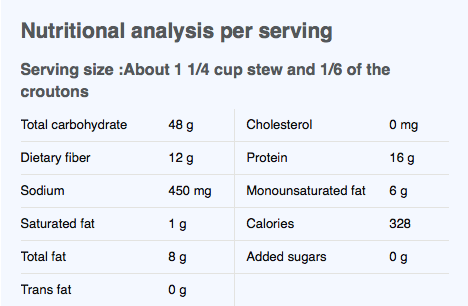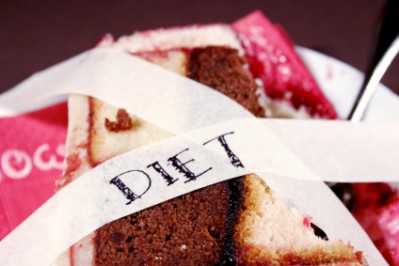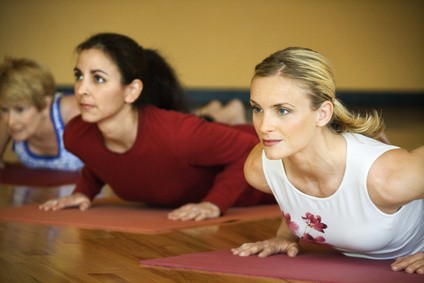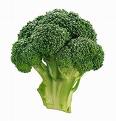
Lawyers, scientists, doctors, investment bankers and those of us with challenging jobs are 22 per cent less likely to suffer age-related brain diseases such as Alzheimers or dementia in later life, according to a recent study.
Whilst this is good news, doctors now believe the onset of brain diseases such as Alzheimers are the result of a combination of factors that can begin in our 30s decades before the symptoms manifest themselves. Like heart and cardio-vascular disease many of us will already silently be developing symptoms. Stress and binge-drinking can accelerate the onset of memory loss and cognitive impairment leading to more serious problems later in life.
So what can we do now to prevent or reverse this process and help our brains function better for longer? According to international nutritionist Patrick Holford, author of The Alzheimers Prevention Plan (Piatkus Books) cognitive impairment and Alzheimers are mostly preventable and we can reverse our risk by making simple changes to our lifestyle and diet.
Cognitex (right) is a multi-supplement for the brain and is available at www.thevitalityshopuk.com
According to Holford only 1 per cent of Alzheimers is caused by genetic factors. Roughly three in ten people over the age of 70 experience poor memory, concentration and confusion, with a further one in ten being diagnosed with dementia, the majority of which go on to develop Alzheimers disease. So we have a 50:50 chance of entering the last quarter of our lives with our mental faculties intact.
Scientists already know that there is a correlation between the build-up of amyloid plaques, a protein that clogs up the brain, killing the cells and Alzheimers but this can only be detected after death through examination of the brain.
One of the key factors in determining whether a person is at risk is to test levels of an amino-acid called homocysteine in the blood. High levels a healthy score is 7 such as 15 or above are likely to indicate worsening mental alertness and the prospect of Alzheimers disease in later life. High homocysteine levels are also implicated in heart and cardio-vascular disease.
Holfords recommendations to lower your H score by: eating less fatty meat, more fish and vegetables; even more green vegetables, a clove of garlic daily, dont add salt to food, cut back on tea and coffee, limit alcohol, reduce stress, stop smoking and supplementing with homocysteine reducing nuritients each day (see Brain Boosters). One of the best, pictured, is Cognitex, which contains the essential nutrients to protect the brain. For more information telephone freefone 0800 011 2496.
At the Brain Bio Centre in London www.brainbiocentre.com Holford has been pioneering this nutrition-based method for reversing the risk of both age-related memory decline and Alzheimers with some success.
At the recent London Anti-Ageing Conference he told medical experts that he had arrested the development of mental deterioration in men and women by changing their diet and some had also had the bonus of having their libido restored.
Since the brain is 60% fat, Holford argues, we should be eating a diet rich in oil soluble vitamins such as Vitamin E (liver and eggs), oily fish (sardines and salmon) and seeds (pumpkin and flax) which contain Omega 3 and 6 essential fatty acids. One of the signs that you may not be getting enough of these vital brain nutrients is a dry skin.
His findings are confirmed by doctors at the Rush Institute for Healthy Ageing in Chicago who discovered that eating oily fish, containing DHA, a form of omega three fat, just once a week, reduces the risk of developing Alzheimers by 60 per cent.
We must also not forget the role of hormones in memory loss. One, pregnenolone, is known as the mother hormone because it converts to a variety of others oestrogen, progesterone, testosterone and DHEA – is also important in brain function. But blood testing is essential and anyone with cancer should not take pregnenolone.
Professor Ian Robertson, of the Institute of Neuroscience at Trinity College, Dublin, in his book, Stay Young with the Mind Doctor, (published by Vermillion) has conducted experiments with exercise and mental workouts which he says make it possible to make the brain younger by up to 14 years.
He prescribes a cardiovascular workout three times a week to raise the heart rate and improve mental function by increasing blood flow to the brain. It also produces a chemical fertiliser for new brain connections and cells (brain-derived neurotrophic factor) and serotonin the enhancing mood chemical. Taking up new mental challenges such as learning new skills such as learning to play a musical instrument or learning a new language work the frontal lobes the brains mind manager which otherwise shrink with age; extreme stress decreases the hippocampus, the brains memory centre, so reduce it and finally keep your mind happy with an active social life and positive personal relationships.
HOW SHARP IS YOUR MIND AND MEMORY?
TRY PATRICK HOLFORDS TEST NOW
Yes No
Is your memory deteriorating?
Do you find it hard to concentrate and often get confused?
Do you sometimes meet someone you know quite well but cant remember their name?
Do you often find you can remember things from the past but forget what you did yesterday?
Do you ever forget what day of the week it is?
Do you ever go looking for something and forget what you are looking for?
Do your friends and family think youre getting more forgetful now than you used to be?
Do you find it hard to add up numbers without writing them down?
Do you often experience mental tiredness?
Do you find it heard to concentrate for more than an hour?
Do you often misplace your keys?
Do you frequently repeat yourself?
Do you sometimes forget the point youre trying to make?
Does it take you longer to learn things than it used to?
Score 1 for each yes answer
If your score is:
Below 5: You dont have a major problem with your memory but you may find that simple diet changes and supplementing natural mind and memory boosters will sharpen you up even more.
5 to 10: Your memory definitely needs a boost. Certain diet changes and supplements can make a big difference.
More than 10: You are experiencing significant memory decline and need to do something about it. As well as following these diet and supplement recommendations we recommend you see a nutritionist.
TOP MEMORY BOOSTING SUPPLEMENTS
Ashwagandha a medicinal plant used in India that has been shown to repair damaged brain cells
Acetyl-L-Carnitine Arginate stimulates the growth of neurites in the brain as well as stimulating production of acetylcholine, an important neurotransmitter
Alpa-Lipoic Acid
Choline a substance needed by the brain to produce acetylcholine
Co Enyme Q10 produced by the body but declines with age and energises the cells. Low levels are also associated with heart disease
DMAE a natural substance also found in oily fish such as salmon and converts to choline and acetylcholine to build and repair brain cells.
Gingo Bilboa a potent antioxidant supplement that strengthens capillaries, promoting healthy blood flow to the brain
Gluthione a natural antioxidant that fights free radicals that damage cells in the body
Lecithin a natural substance found in the body that helps maintain cell structure
N-acetyl cysteine an amino acid that helps remove homocysteine from the blood
Omega 3 fats found in fish (salmon, sardines, mackerel) and seeds (pumpkin and flax)
Phosphatidylserine a natural part of the healthy cell membrane but declines with age. Helps concentration and is available as a dietary supplement in the US but only available in the UK on prescription.
Pregnenolone mother hormone that declines with age and vital to brain function











